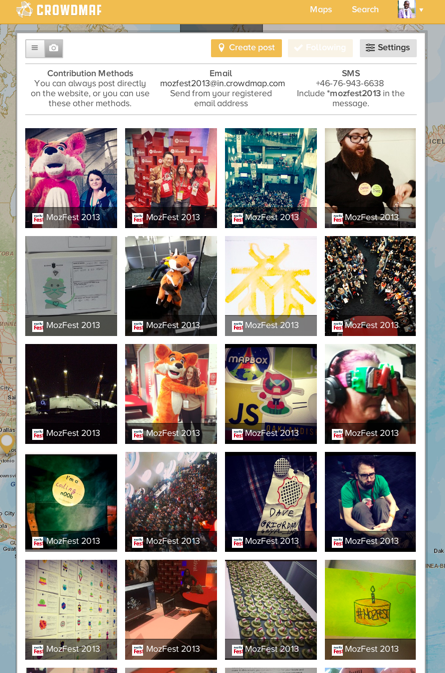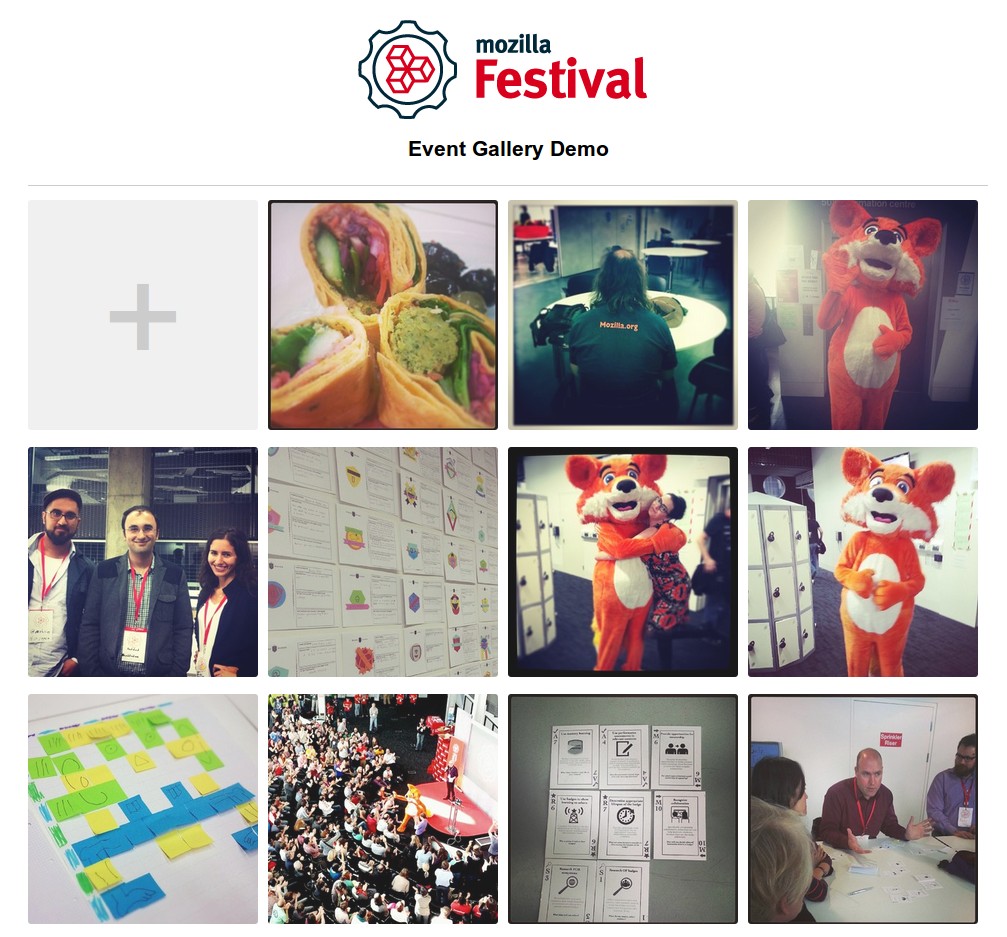Angie and I got an opportunity to be a part of this year’s Mozilla Festival, joining hundreds of web makers from across the globe as they came together to teach and learn from each other.
How did Crowdmap fit into the unconference's theme for 2013?
There were 10 different festival tracks this year, revolving around making and keeping the web more open. We’ve always looked at Crowdmap as a firehose of content and metadata; a free and open API that taps into social networks (Twitter, Facebook, Foursquare, Instagram, App.net and Crowdmap itself), generating a refined layer of valuable metadata, and empowering everyone to be an active contributor to stories told about their locations.How did our session go?
We had a fantastic time with the attendees who joined us for our hour-long session. After introducing Ushahidi and Crowdmap to the crowd, we split off into teams and started theorycrafting exciting new interfaces for tapping into the tremendous amount of data that constantly flows through Crowdmap’s API. We were struck by the varying backgrounds and technical levels of those that attended the session, and how easily everyone grasped the rather abstract concepts that go into building and harnessing an API. After the teams came back and presented the ideas, we were able to compress a few of the similar concepts into larger and more refined ideas. In the end we settled on 3 fully thought out projects: Timeline — An interface for examining a specific location or sample group of users over a period of time. Pick a place, a term or a list of people; specify the range of time to visualize, then pan through a timeline of all of the photos, messages, and other content that has been shared there. This could be useful for crowdsourced data verification, or just seeing the range of perspectives of those who were at an event. Deaddrop — Data security meets geocaching. Possibly the basis for a game, though it certainly has potential real world applications. The idea is that you store an encrypted message (with an agreed upon cypher key between you and the intended recipient) or upload an image file with hidden content (steganography) at a specific set of geo-coordinates. This special post is hidden from general seach queries and only appears when you request those specific coordinates. After successfully retrieving the content, the message may optionally self destruct and disappear. Survey/Sample — Perhaps less of a UI and more of an API feature, this would allow you to target a radius around a GPS coordinate and sample posts that have been tagged there for common terms, personality/attitude, and other attributes. This might be useful in quickly building heat maps about what regions of your city are considered the dirtiest, or where the best restaurants are grouped, or finding where the most speakers of a certain language are centered; basically, anything that can be sampled. We’re really excited about these ideas and are looking forward to prototyping them in the months ahead. We also demoed an upcoming design revision of the Crowdmap mobile experience to attendees that is vastly improved in performance, accessibility and offers a range of new features. We’ll be previewing this further in the next week here on the blog, so stay tuned for that!P.S. You can take a look at the session’s etherpad to see notes that were taken
We built a quick demo app (2-3 hours of dev time) just to give a very basic example of what you might use the Crowdmap API for. In this case, it’s a live stream of hashtagged photos from Instagram that were being taken at the Festival, under the MozFest2013 map. We’ve put the code up on GitHub, you just need to update the config file to your API key and pick a map to point it to. We’ve put together a WebMaker tutorial on how you can quickly deploy the demo app on your own web server.
